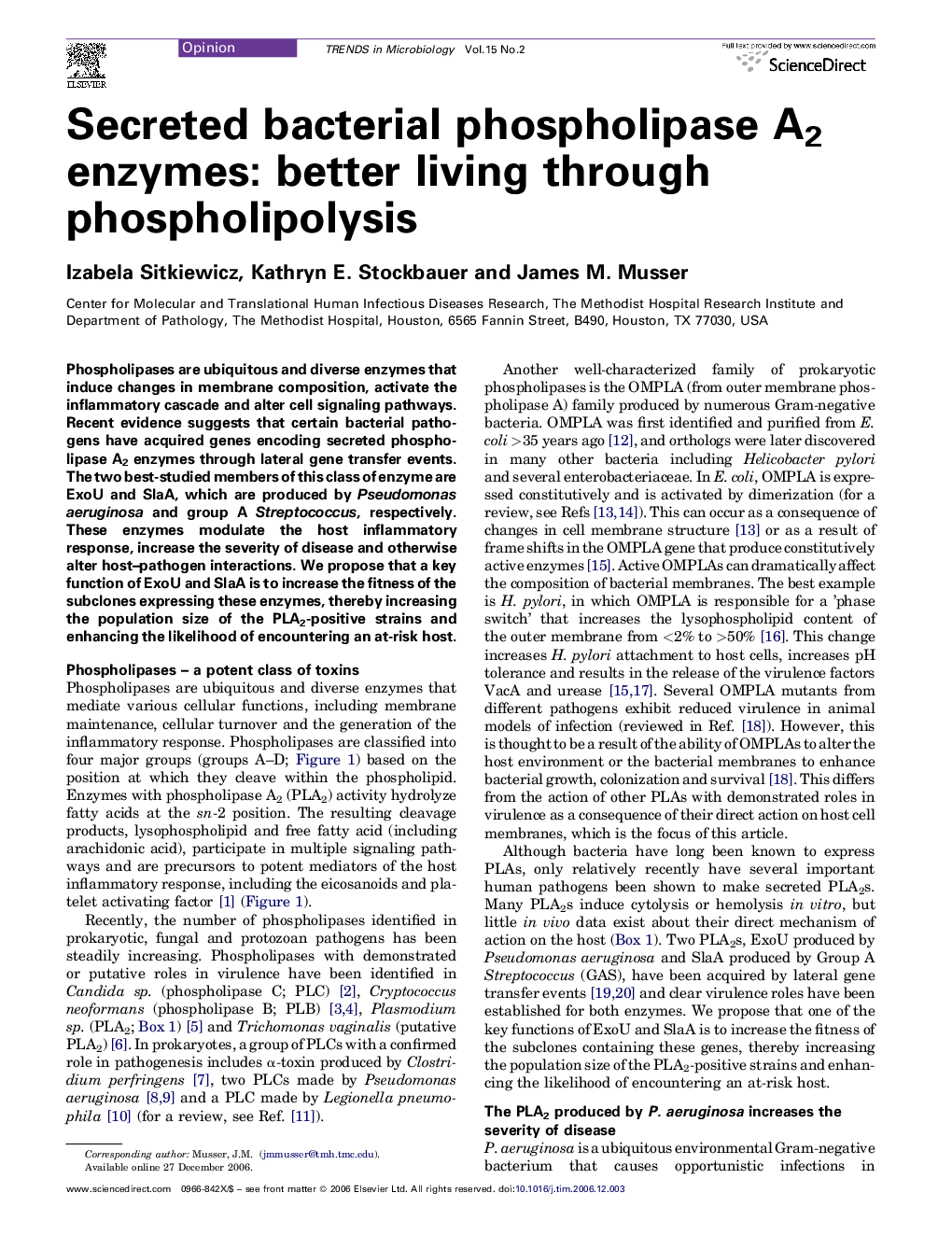| Article ID | Journal | Published Year | Pages | File Type |
|---|---|---|---|---|
| 3422588 | Trends in Microbiology | 2007 | 7 Pages |
Phospholipases are ubiquitous and diverse enzymes that induce changes in membrane composition, activate the inflammatory cascade and alter cell signaling pathways. Recent evidence suggests that certain bacterial pathogens have acquired genes encoding secreted phospholipase A2 enzymes through lateral gene transfer events. The two best-studied members of this class of enzyme are ExoU and SlaA, which are produced by Pseudomonas aeruginosa and group A Streptococcus, respectively. These enzymes modulate the host inflammatory response, increase the severity of disease and otherwise alter host–pathogen interactions. We propose that a key function of ExoU and SlaA is to increase the fitness of the subclones expressing these enzymes, thereby increasing the population size of the PLA2-positive strains and enhancing the likelihood of encountering an at-risk host.
